World war Bronze age: who won the first battle in European history
Categories: Conflict | Europe | History | Nations | Science
By Pictolic https://pictolic.com/article/world-war-bronze-age-who-won-the-first-battle-in-european-history.htmlHistorians believed that during the Bronze age, Northern Europe was a backward region. However, findings on the German river Tollense, changed this view. Three thousand years ago there was a great battle, in which took part several thousand men on each side. The enemies were killing each other with bronze swords and wooden hammers.
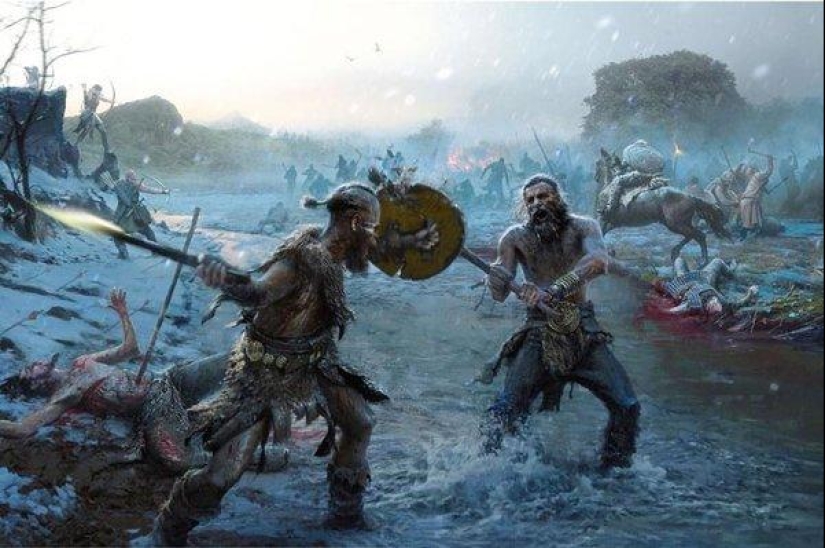
In 1996 on the Bank of a small river Tollense in German Pomerania archaeologists-lovers, Hans-Dietrich Borgwardt and his son, Ronald found a few human bones. In 2008, excavations began, which made it clear that in the Bronze age on this river there was a battle of thousands of soldiers. This is the first known battle in Western and Central Europe.
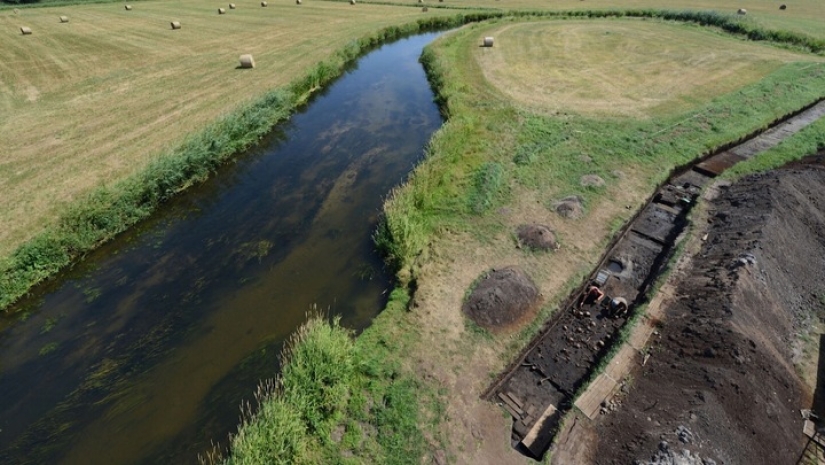
Excavations on the shore Tollense
Over 8 years of painstaking work by archaeologists and divers have studied two kilometers of the shoreline. 9 it was discovered thousands of bones belonging to 125 different individuals. The search is not yet completed and excavations are held each year. In one of the sections 12 m2 scientists have unearthed the bones of fifteen hundred and 20 human skulls.
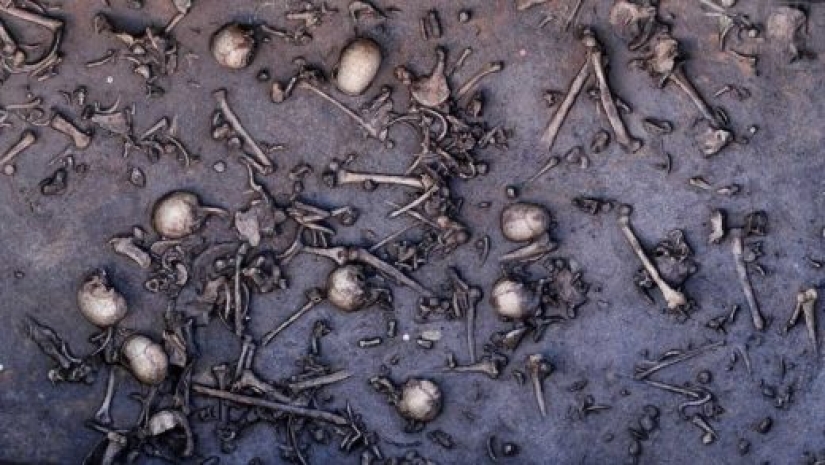
The skulls and bones of the participants in the battle
Near the ruins, archaeologists found bone and bronze arrowheads, clubs and wooden hammers. From a cursory analysis of the data it is clear that on the shore Tollense there was a tremendous battle, but who, when, and most importantly, what is beat?
Radiocarbon Dating of the finds showed that the battle took place in the Bronze age, between 1 300 — 1200 years BC. Archaeologists believe that found only a small part remains. According to them, the death toll is measured in 700-800 people. Just fought up to 4 thousand soldiers. Identified researchers and the reason for mass slaughter.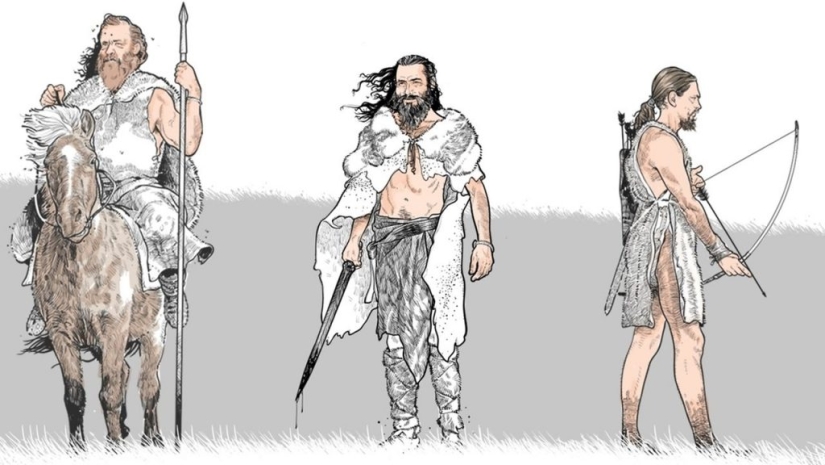
European warriors of the Bronze age
This is a huge number not only for the age of bronze, but also for the middle Ages. German archaeologist Detlef Jantzen wrote:
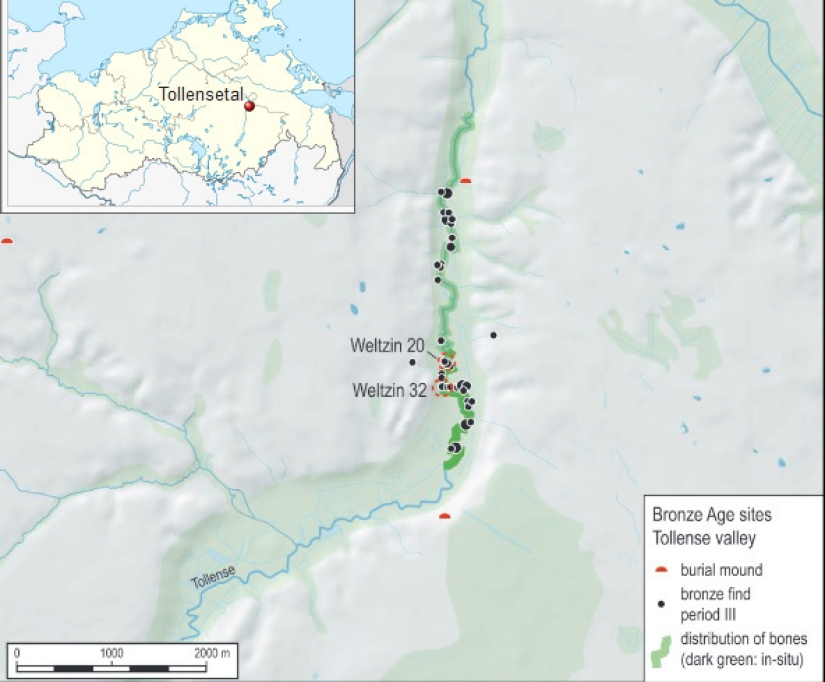 Map of finds on the river Bank Tollense
Map of finds on the river Bank Tollense
In those days Tollense was more deep and wide. In the heart of the battle, archaeologists found broken pillars, two layers wood layers and traces of sand mounds, indicating that the presence of the crossing. While it was built 400 years before the battle. Near the bridge managed to find a large settlement, Bogacheva through trade and fees which were charged with passing on the crossing of travellers and caravans.
The uniqueness of the finds lies in the fact that the river silt has preserved the weapon of the warriors, which was found by archaeologists. Wooden clubs and hammers became the real sensation of the scientific world. Analysis of the bones showed that most of the wounds inflicted on the bronze swords, but they were not found.
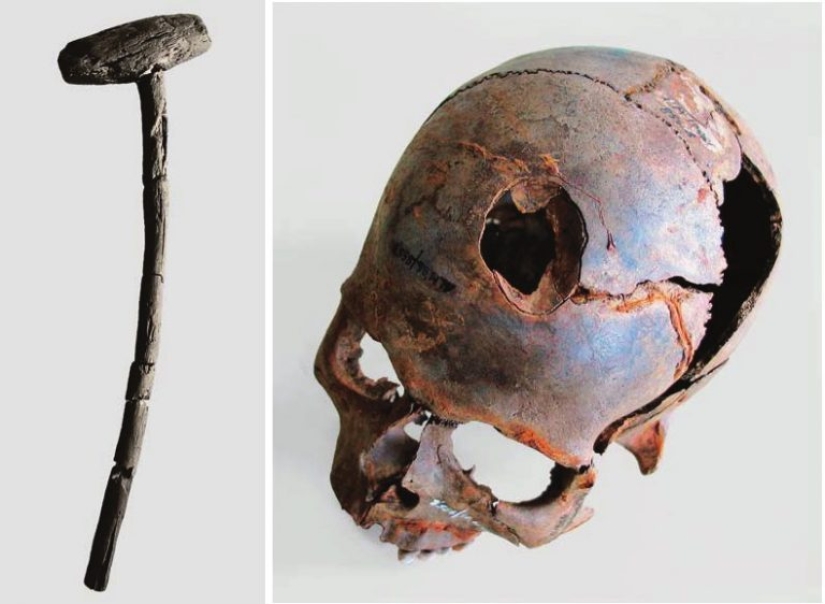
Wooden hammer from Tollense and the consequences of its use
Apparently, the winners were collected from the battlefield all the valuables, and the bodies of the enemies threw into the river. In battle were widely used bows. Used as bronze and bone arrowheads. The first better armor, but the second when injected into the body could crack, which brought additional suffering to the wounded.
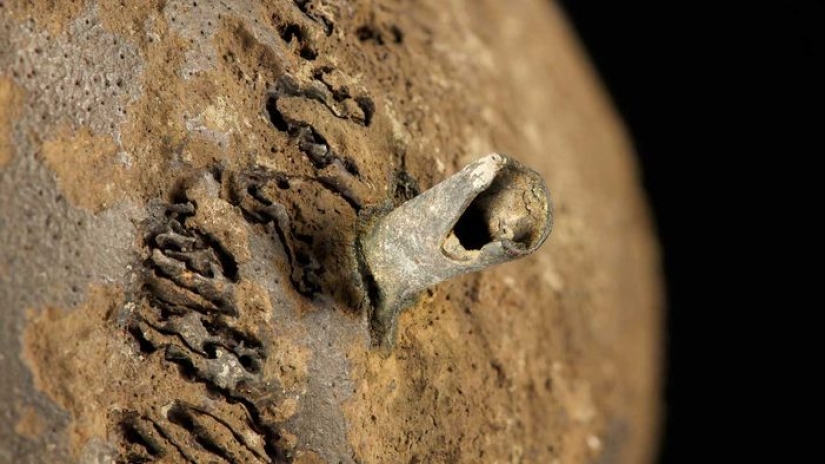
A bronze arrowhead embedded in the skull
The soldiers covered each other with arrows, and then rushed into the melee, in which the main weapons were clubs, spears and bronze swords. Scientists conducted isotope analysis of the teeth of the participants of the battle, which shows what water and food consumed their media in childhood. It serves as a geological marker of the area where they grew up.
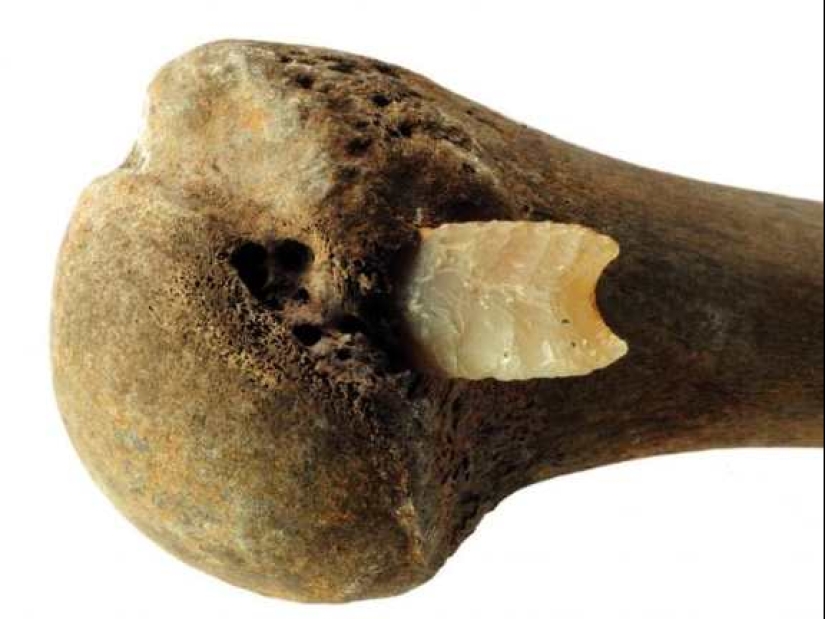
The arrow from flint in the bones
It turned out that all the victims came from afar, but from where is not clear. After examining the teeth of 20 people, the researchers came to the conclusion that the invaders was kind of a hodgepodge that had gathered from different places of Europe. And they have teamed up to win the terminal, which for several centuries was feeding her old owners. Subsequent history has shown that in battle forged Europe, where the war flared up at the slightest provocation. For example, because wooden buckets stolen by a neighbor.
Keywords: Archaeology | Excavations | Battle
Post News ArticleRecent articles

Treasures are all associated with pirates, robbers and the affairs of bygone days. You will be surprised, but countless treasures ...

Professional street photographer Eric Kim teaches his craft in workshops around the world. Next, you will find some tips from a ...
Related articles

In terms of history, monogamous marriage is a relatively new. In it, the necessity arose in connection with the development of ...

Norwegian Explorer Thor Heyerdahl became famous for his travels that debunked historical myths. Journey on the balsa Heyerdahl ...

For many years, we were taught that even in the 19th century, a person was considered an old man at the age of 30, and life ...

An Englishman, a German and a Russian meet... No, this is not the beginning of another joke, but a rough description of a video ...